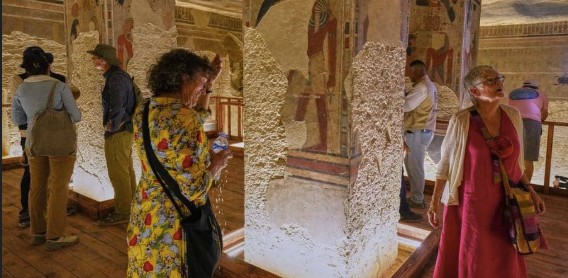Senators push for lifetime certificate of good conduct to ease burden on job seekers

Murang’a Senator Joe Nyutu urged the government to embrace modern technology — such as biometric fingerprint recognition, data encryption, and secure communication systems — to ensure accuracy and integrity in issuing the certificates.
Senators have called for major reforms to Kenya’s certificate of good conduct, proposing that it be valid for a lifetime and only revoked when an individual is convicted of a crime.
They argued that the current annual renewal process places an unnecessary financial and logistical burden on job seekers, especially young people entering the job market.
More To Read
- Kenyans can now get police clearance certificates at select Huduma Centres
- Smart driving licence access expanded to 15 Huduma Centres
- Over 82,000 IDs lie uncollected at Huduma Centres nationwide
- Study: Over 130,000 Ugandan civil servants 'bought' jobs
- MPs demand list of authorised job agencies after Kazi Majuu complaints
- Auditor General raises alarm over lack of legal backing in Huduma Kenya operations
The legislators urged the national government to automate and decentralise the issuance, renewal, and verification processes to make them more efficient.
Senators noted that the existing manual system is often slow, inconsistent, and riddled with delays.
Nandi Senator Samson Cherargei stated that the certificate should remain valid unless a court rules that the holder has violated the law.
“Why should someone be required to renew it every year? Only in cases of arrest and conviction should the certificate be revoked,” Cherargei said.
Decentralise access
He added that access to the certificate should be decentralised to DCI sub-county offices or Huduma Centres across the country, just like national ID services. He questioned why residents of Turkana, Migori, Nandi, Kilifi, and Meru must travel to DCI headquarters to obtain the document.
“The process is tedious and full of corruption. Even the payment of Sh1,050 to obtain the certificate is punitive,” he said.
“One of the greatest burdens on young people, many of whom are unemployed, is the cost of obtaining various clearances after being shortlisted for a job interview. These include KRA clearance, Higher Education Loans Board clearance and the certificate of good conduct. When you add up these costs, including transport, a young person in Kenya typically needs around Sh10,000 to attend an interview.”
Murang’a Senator Joe Nyutu urged the government to embrace modern technology — such as biometric fingerprint recognition, data encryption, and secure communication systems — to ensure accuracy and integrity in issuing the certificates.
Manual process
“Sometimes it takes a lot of time before young people get a certificate of good conduct, basically because the process is manual. Those seeking these certificates are sometimes forced to travel long distances to have their biometrics taken and physical forms filled,” Nyutu said.
Kisumu Senator Tom Ojienda backed the proposal, saying decentralising the service would enhance convenience and reduce waiting times.
“This is doable because we have centralised the data system and the issuance of identification cards,” he said.
Uasin Gishu Senator Jackson Mandago noted that the certificate is vital for all citizens, not just the youth, and urged the National Police Service to provide adequate resources to make applications accessible from anywhere through technology.
“This being a critical document, its availability, therefore, is imperative. It should be made available to all citizens, regardless of the regions or the places that they operate from,” Mandago said.
“There is absolutely no reason why citizens still have to travel from the comfort of business locations or where they reside to look for this service that can be available digitally.”
Nyutu further called for increased public awareness campaigns, particularly in rural areas, on how to apply for and renew the certificate, stressing the need for a system that is efficient, transparent, and accessible to all.
Top Stories Today










































